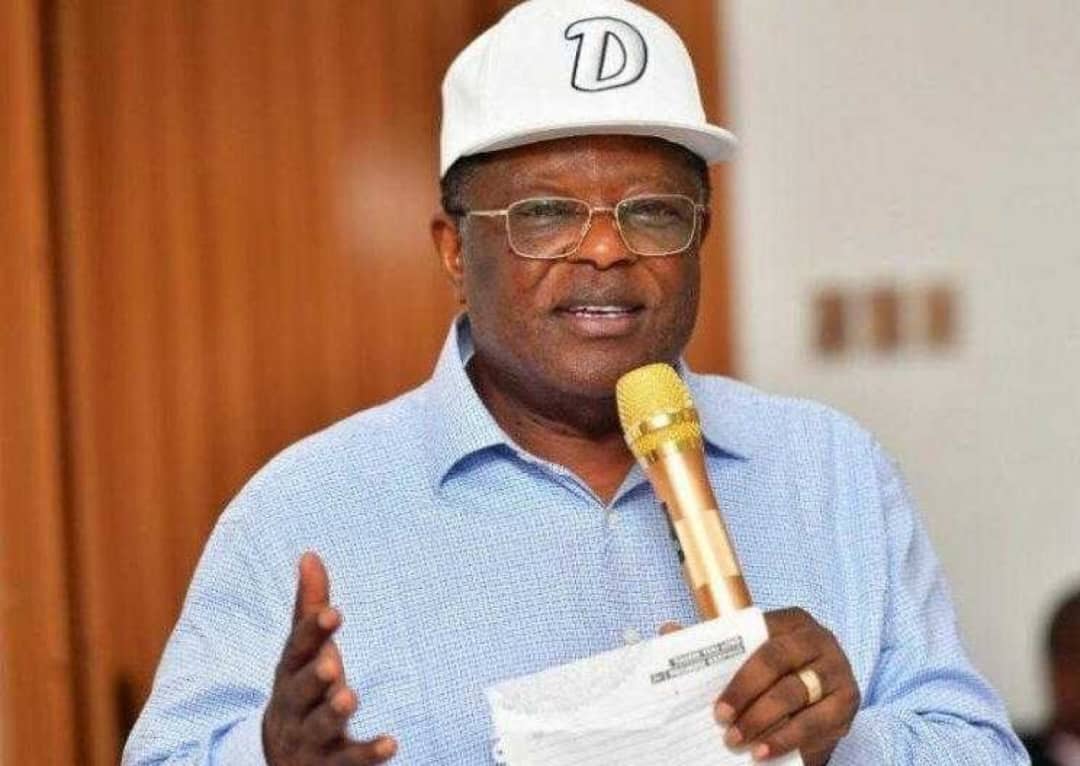National
Minister of Works Orders Closure of Waterway Between Eko and Carter Bridges Over Structural Damage

The Minister of Works, Senator Dave Umahi, has ordered the immediate closure of the waterway situated between Eko Bridge and Carter Bridge in Lagos following structural damage to the Eko Bridge, which has been linked to dredging activities in the area. The directive was issued after an inspection tour by the minister revealed significant safety concerns affecting the integrity of the bridge.
Senator Umahi made the announcement on Friday, April 5, 2024, during a visit to assess the state of federal infrastructure in Lagos. According to him, ongoing and unregulated dredging operations near the base of the bridge have caused serious harm to the foundation and structural elements of the Eko Bridge. He expressed concern that if left unchecked, the damage could lead to catastrophic consequences for commuters and the general public.
The minister stated that the decision to shut down the waterway was made in the interest of public safety. He added that the closure will be enforced immediately and remain in place until thorough structural assessments are completed and remedial actions are taken. He also noted that relevant federal agencies, including the Nigerian Ports Authority and the National Inland Waterways Authority, would be engaged to ensure compliance and monitor all dredging activities in the area.
Umahi criticized the operators responsible for the dredging, accusing them of negligence and endangering public infrastructure for economic gain. He described their actions as a clear violation of engineering and environmental standards and promised that appropriate sanctions would be considered. The minister called for a review of all dredging permits issued in the vicinity of critical national infrastructure, particularly around bridges and ports.
He further disclosed that the federal government has commenced investigations into how dredging licenses were granted near major bridges without adequate structural impact assessments. Umahi said the Ministry of Works will collaborate with law enforcement agencies to hold accountable those found responsible for the damage.
The minister reassured the public that the Eko Bridge remains safe for use at the moment, but stressed that continuous exposure to such harmful activities could compromise its structural stability over time. He noted that engineering assessments would be carried out urgently to determine the extent of the damage and necessary repair measures.
The Eko Bridge, one of Lagos’s major transport arteries, connects the Lagos Island to the mainland and plays a vital role in the city’s traffic flow. Any prolonged disruption or deterioration of the bridge could have severe implications for transportation and commerce in Nigeria’s commercial capital.
Senator Umahi also called for greater synergy between federal and state regulatory bodies to monitor and manage activities that impact national infrastructure. He emphasized that bridges, roads, and other public assets must be protected from commercial practices that threaten their integrity.
As part of immediate measures, the Ministry of Works is expected to deploy technical experts to conduct an in-depth inspection of the bridge and propose a rehabilitation plan if necessary. The government is also considering placing a moratorium on dredging near all major bridges across the country until a comprehensive risk assessment is completed.
The closure of the waterway has sparked reactions from stakeholders in the maritime and construction industries. While some have expressed concern about the economic impact on dredging operations and water transport, others have backed the decision, citing the need to prioritize safety over profit.
The Lagos State Government has yet to issue an official response to the federal directive. However, sources within the state’s Ministry of Waterfront Infrastructure Development indicate that consultations are ongoing to align state-level oversight with federal concerns.
The development adds to growing concerns about the impact of unregulated urban and industrial activities on Nigeria’s infrastructure, especially in densely populated and economically active cities like Lagos. As the federal government moves to enforce stricter control over dredging and related operations, more infrastructure audits may be conducted to prevent similar risks across the country.
